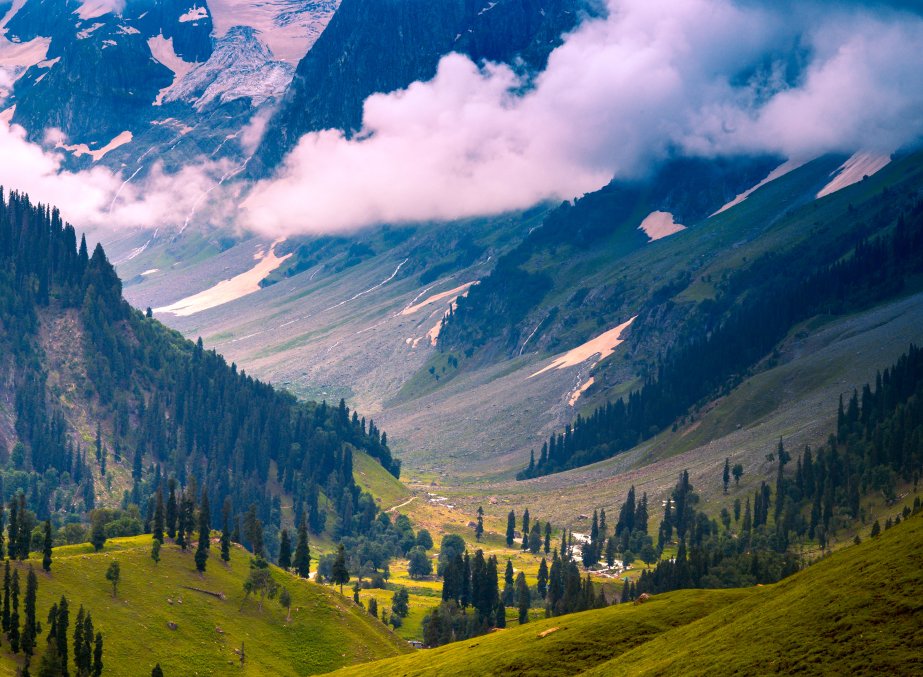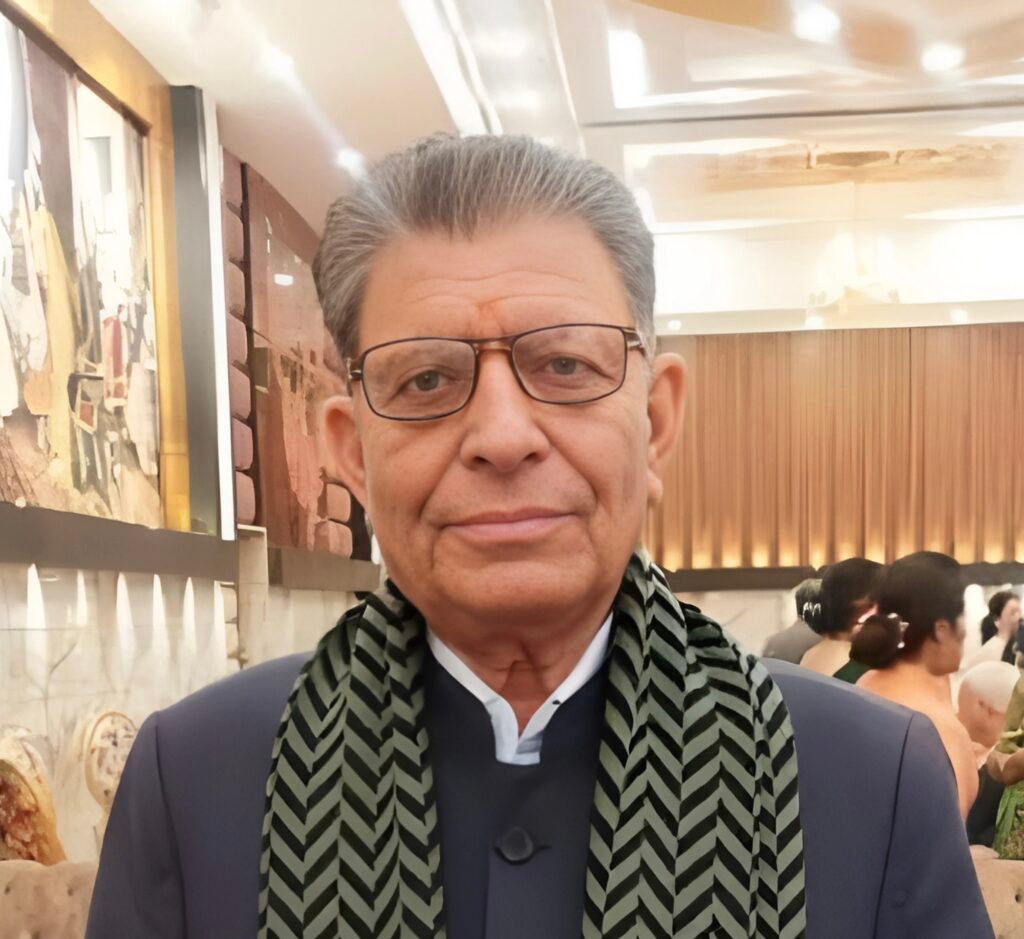If Kashmir Doesn’t Belong to Us, How Can It Belong to You?

A Soul-Searching Question from the Kashmiri Pandit Community to Kashmiri Muslims.

Kundan Kashmiri
“If Kashmir does not belong to me, how can it belong to you?” This profound question, posed by the Kashmiri Pandit community to Kashmiri Muslims, is not just a rhetorical challenge but a call for deep reflection. The undeniable truth of Kashmir’s history lies in the fact that Kashmiri Pandits were the original custodians of this land, nurturing it with their intellect, spirituality, and cultural richness for millennia. Over 99% of today’s Kashmiri Muslims are descendants of converted Kashmiri Pandits. Their ancestors shared the same temples, traditions, and way of life that defined Kashmir’s identity. How, then, can those who inherited this legacy now claim exclusivity over Kashmir while denying the very existence of its original guardians?
It is important to emphasize that Kashmir owes its origins to the legendary sage Kashyap Reshi, who drained the primordial waters of the valley and made it habitable. This land, known as Kashyap Marg or Kashyap Bhoomi, was named after him and remains a sacred ground for his descendants, the Kashyap Putras, the sons of Kashmir. No one can erase its basics, its originality, or its eternal reality. Kashmir will always remain Kashyap Bhoomi, a land that belongs to all Kashyap Putras, regardless of the distortions imposed by history.
The cultural erasure and demographic changes that Kashmir has witnessed over centuries are a testament to one of the most prolonged acts of identity distortion. Temples and sacred shrines, once vibrant centers of worship, were either destroyed or converted into Islamic places such as dargahs, astans, and mosques. The sacredness of Anantnag, which was dedicated to Lord Shiva, has been obliterated under its new name “Islamabad,” erasing its connection to the Shaivite tradition. The Shankaracharya Temple, one of the oldest symbols of Hindu spiritual ascendancy, has been renamed “Sulaiman Hills,” denying its historical importance as a site of enlightenment for sages and seers. Similarly, Hari Parbat, a hill dedicated to Goddess Sharika, has been distorted into “Kohimaran.”
The city of Srinagar, once known as the “Temple City,” was adorned with temples and Shiv lingas at every corner. Today, it is lamentably referred to as the “Land of Mosques,” reflecting the systematic destruction of Hindu places of worship. Entire libraries of Kashmiri Pandit literature, containing invaluable scriptures, philosophical texts, and spiritual treatises, were buried, burned, or destroyed, leaving an irreplaceable void in India’s cultural heritage. Even the Kashmiri language, Koshur, once steeped in Sanskrit, was replaced by Persian and Urdu under centuries of external rule, stripping the Pandits of their linguistic identity.
The very geography of sacred spaces in Kashmir has been desecrated. Sites where Shiv Samadhis and meditation centers stood for centuries have been desecrated or repurposed into venues for feasting, dancing, and other activities that mock their spiritual sanctity. Electoral rights of the Kashmiri Pandit community, who were forcibly displaced, remain unacknowledged. Despite being the rightful residents of Kashmir, they have been rendered voiceless and stripped of any representation in their land of Kashyap..
Even the spiritual legacy of saints and sages has been hijacked. Saints like Lal Ded (Lalleshwari), a Shiv Yogini and mystic poetess whose verses embodied Kashmiri Shaivism, have been misrepresented as Islamic figures. The appropriation of this cultural and spiritual heritage is a direct assault on the identity of the Kashmiri Pandits.
The question to Kashmiri Muslims, particularly those who espouse separatist ideologies, remains: How can you deny the Pandit legacy when it forms the foundation of Kashmir’s identity? How can you ignore that your ancestors shared this heritage, prayed in these temples, and spoke the same language? By disowning this legacy, you disown a part of yourself.
Kashmir is not merely a piece of land. It is the cradle of one of the oldest and most advanced civilizations, a land that gave birth to Shaivism, Tantric traditions, and profound philosophical thought. It was the home of great scholars like Abhinavagupta, Kalhana, and Vasugupta, whose works remain unparalleled in the history of Indian literature and spirituality. This legacy is not confined to the Kashmiri Pandit community alone—it belongs to all humanity. Yet, it is being systematically obliterated through distortion, denial, and destruction.
It is vital to assert that the rehabilitation and settlement of the original inhabitants, the Kashmiri Pandits, is not merely a matter of justice but of historical necessity. Their return to Kashyap Bhoomi must be consolidated at one secure location to ensure their safety, dignity, and identity. This will not only restore a sense of belonging for the Kashyap Putras but also reaffirm the roots and essence of Kashmir’s true heritage.
The world must take cognizance of this cultural genocide. The conversion of sacred sites, the annihilation of historical records, the imposition of foreign languages, and the obliteration of an ancient civilization’s identity constitute a crime against humanity. Justice demands not only the restoration of what has been lost but also the preservation of what remains.
To the Kashmiri Muslims who value truth and justice, this is your opportunity to correct the wrongs of history. Stand with your Pandit brothers and sisters. Acknowledge the shared heritage, protect what remains, and strive to heal the wounds of the past. Only by embracing the truth can Kashmir reclaim its identity as a land of wisdom, spirituality, and harmony.
Kashmir belongs to us all, but only when its true history is honored, preserved, and celebrated. The soul of Kashmir will only awaken when its rightful custodians are restored to their land of Kashyap, and its legacy is protected for generations to come. Kashmir will forever remain Kashyap Bhoomi, the sacred land of the Kashyap Putras.
(Disclaimer: The views are of the author and not of the Straight Talk Communications. The author is a Kashmir watcher, freelance writer & President Kashmiri Pandit Conference)







